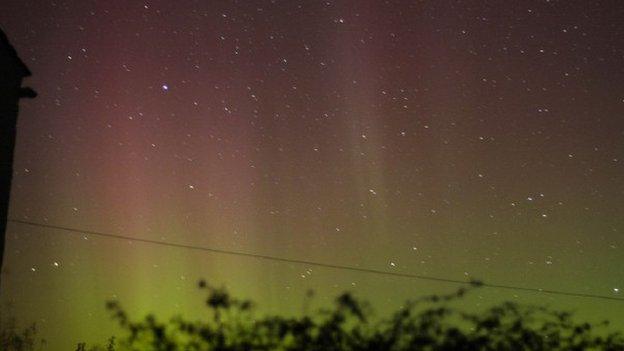Rum bidding for Dark Sky Island status to boost astro-tourism
- Published
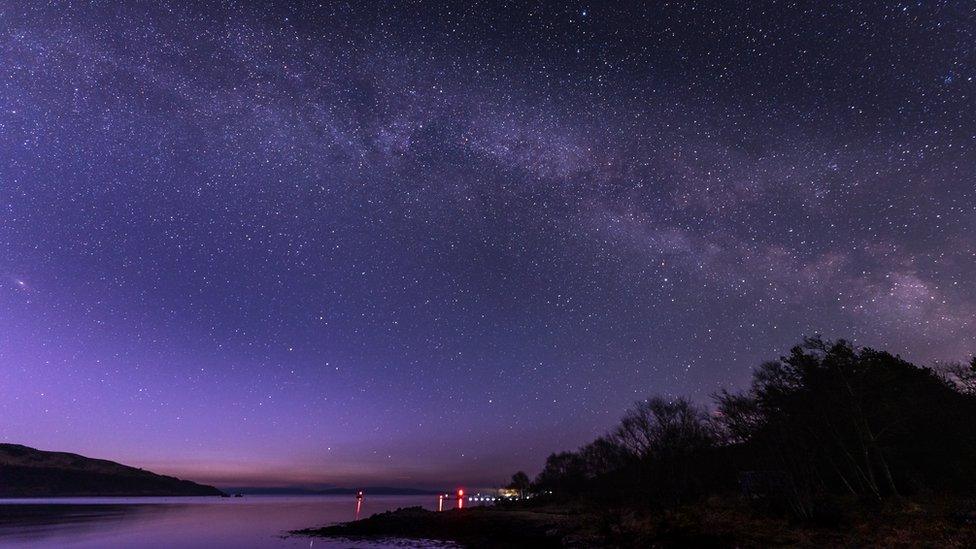
A Scottish island where stargazers can view the Milky Way with the naked eye is bidding to protect its clear night skies and boost visitor numbers.
Residents on Rum are hoping it will be recognised as a Dark Sky Island.
They have been preparing an application to the International Dark Sky Association.
It combats light pollution worldwide, and grants official recognition to areas which implement policies which reduce artificial light.
Scotland currently has two dark sky parks - Galloway Forest and Cairngorms.
Moffat in Dumfries and Galloway and the islands of Coll and North Ronaldsay are also certified as dark sky communities.
In recent years, the community of just 30 people on Rum have made efforts to overhaul the island's lighting system.
There are no streetlights and this is combined with hardly any buildings and no traffic.
When the sun sets, locals and visitors alike can experience a naturally dark sky, and enjoy views of the meteors, shooting stars, and twinkling planets.

The application is being led by the island's visitor services manager, Alex Mumford, who also runs the main accommodation.
"On a clear night we have meteors going above our heads, planets, and some amazing galaxy views as well," he said.
"About 97% of the island is a nature reserve with no unnatural lights at all. It's the perfect place to protect that."
The island community has been working on the application for about 18 months.
They have been taking readings with special equipment used to determine the brightness of the night sky.
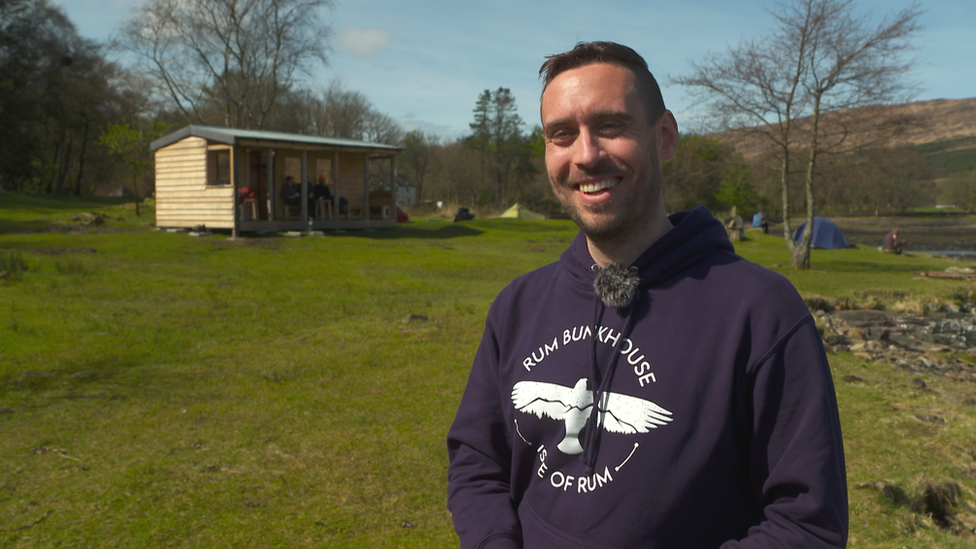
Alex Mumford has been working on the island's application to the International Dark Sky Association
"We have to take these through our whole season so we get a gauge of what the sky is like at different times of the year and night," Mr Mumford said.
"We need to make sure there are plans for the future in terms of what it's going to look like and what this means.
"There's a future protection plan such as a lighting policy for any development here, and making sure the local curriculum in the schools is teaching about dark skies and what it means for the flora and fauna here."
Dark Sky status would also benefit some of Rum's other inhabitants, its seabirds.
The island is home to a fifth of the world's population of Manx Shearwaters, a nocturnal bird which relies on the darkness to navigate to South America every year.
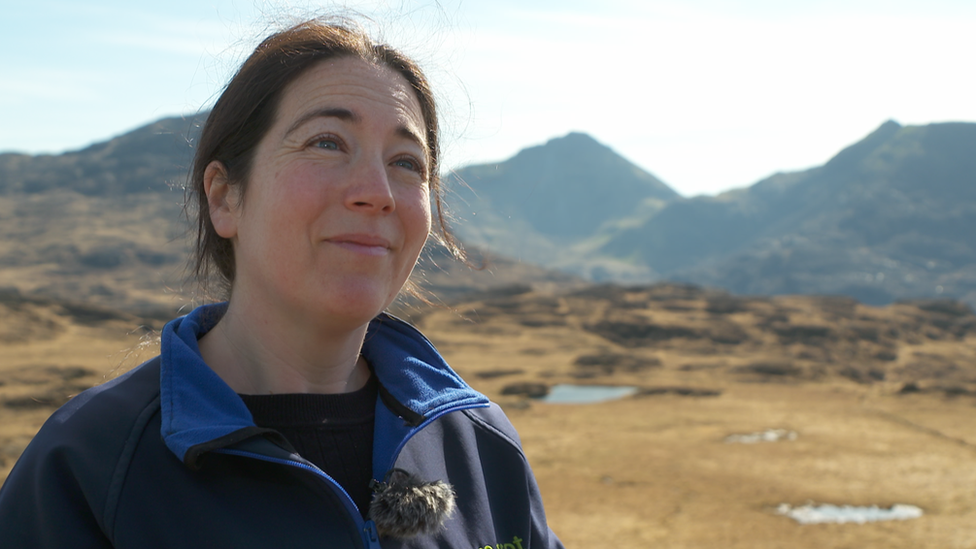
Nature Scotland's Lesley Watt says dark sky status could help better Rum's seabird population
Keeping the island's night skies dark could be vital for their survival.
"This is another layer of protection for a species that's quite vulnerable on land," said NatureScot's Lesley Watt, who runs the reserve on Rum.
"Manx Shearwaters are attracted to artificial light; they are most vulnerable at this time of year when they're returning from migration, and in September when fledglings make their first flight to South America.
"On that flight, if there are any artificial lights in the village, they could be drawn to those lights instead of reaching the sea for their onward journey. If they do get grounded, they have very little chance of making it out to sea."
She added: "We already publicise the need to use blinds and turn off unnecessary lights at this time of year, and getting this status would be another layer of protection."
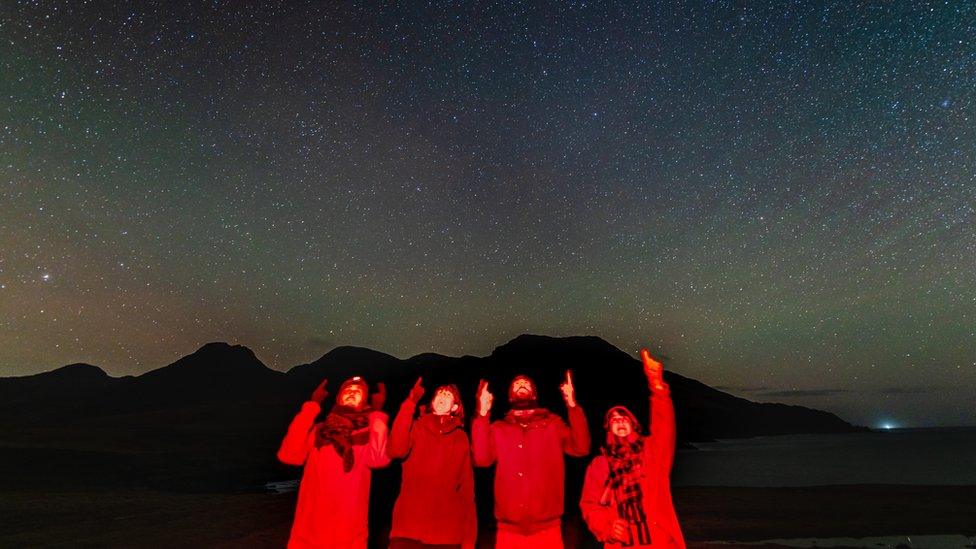
Residents on Rum want to attract more visitors to the island with the promise of great stargazing opportunities
It is also hoped that by achieving Dark Sky Island status, Rum would be able to capitalise on "astro-tourism" and bring in visitors to the island at a time away from the busier summer season.
Residents hope to raise £10,000 through an online fundraising effort, with the money earmarked for sky-gazing equipment including telescopes, weather stations and a sky camera, all of which will help their application to the IDA.
The community own most of the inhabited portion of the island, and rely on tourism to bring in extra money for development.
The main draw, Kinloch Castle, closed to visitors last year, and there are no plans to open its doors in the near future, meaning the community is looking at other avenues of tourism.
"Most people aren't coming to Scotland from October through to March, which is the best time to view the night sky," Mr Mumford said.
"This is the perfect opportunity to help with that. We want to show off what we have here, and the work we've put in to protect that.
"We want to show people what we get to see every day."
Related topics
- Published16 November 2019
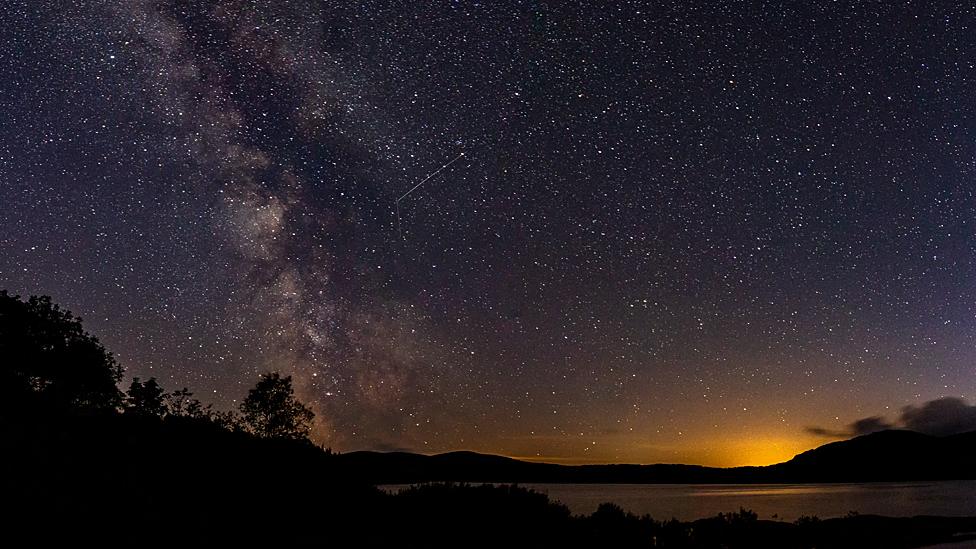
- Published2 May 2019
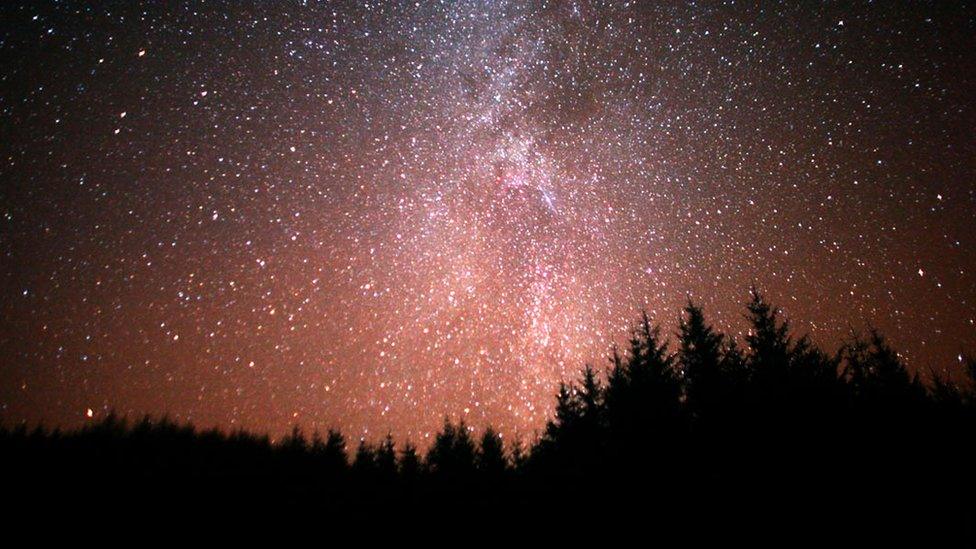
- Published24 May 2016
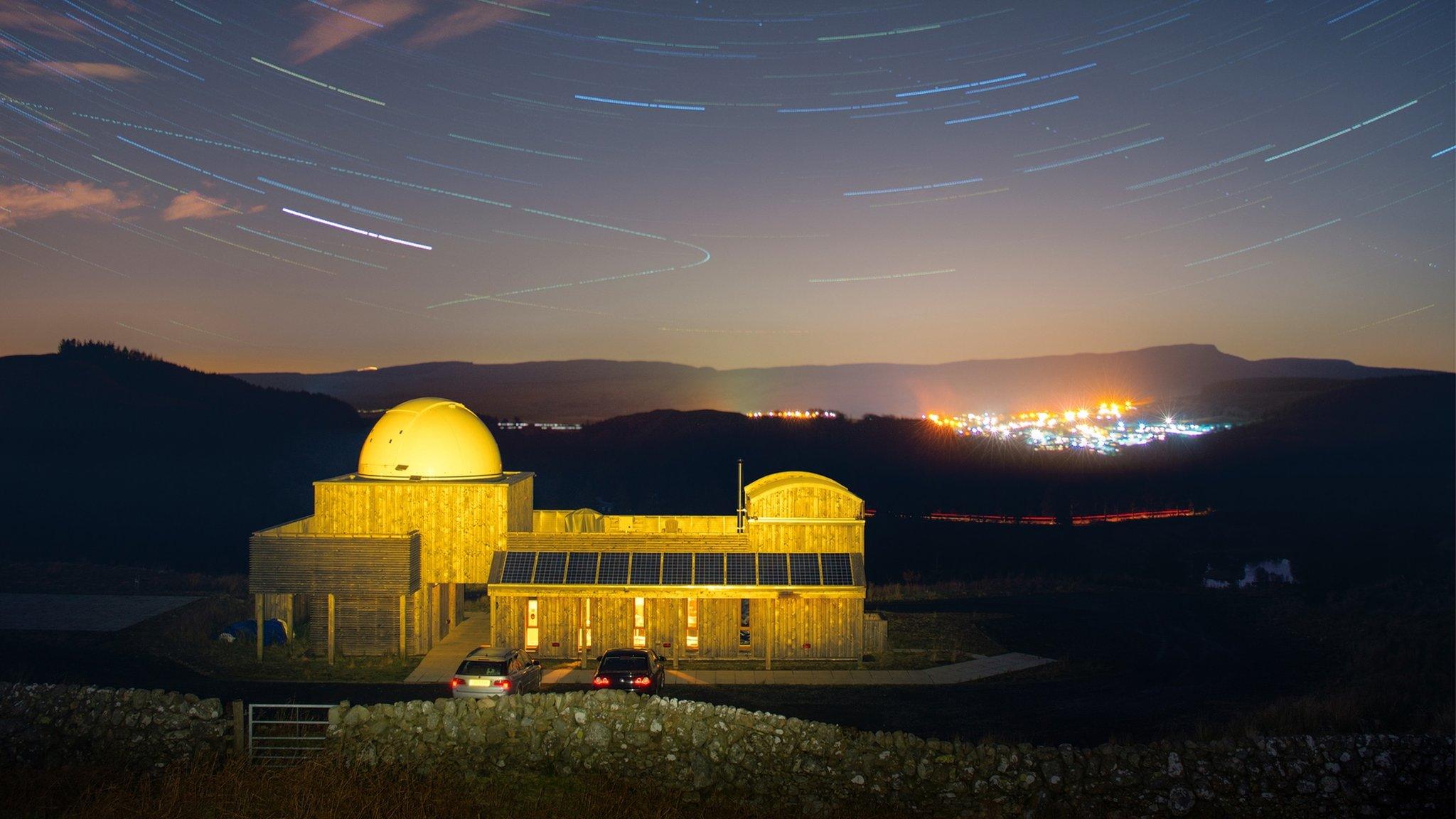
- Published9 December 2013
